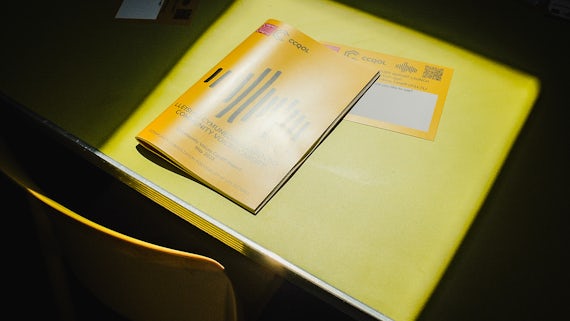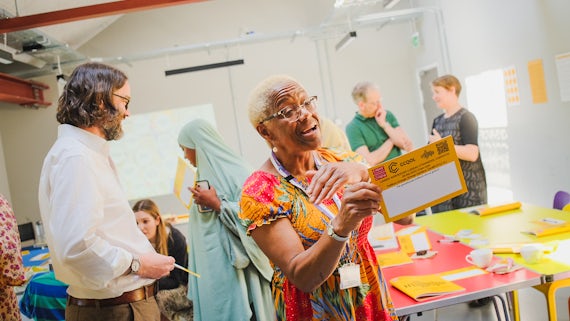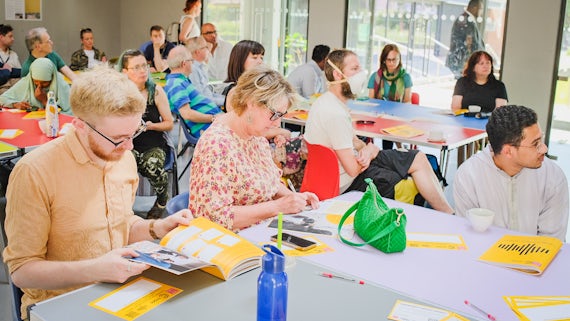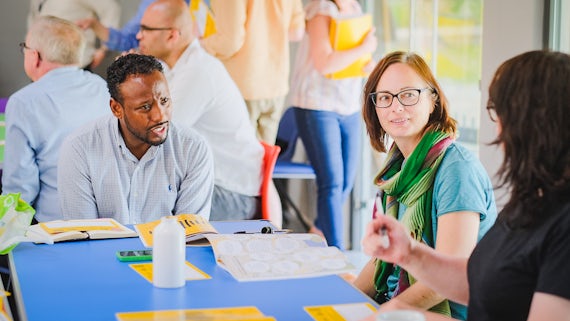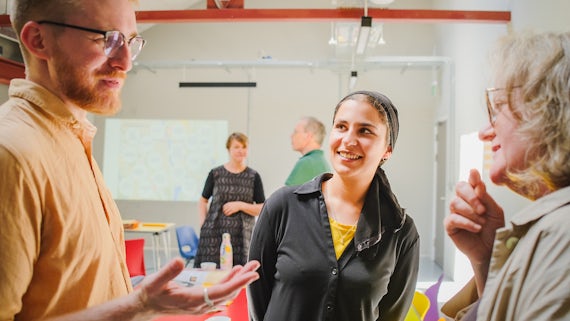Not "hard to reach": investment and inclusion key to doing community consultation differently, report finds
13 June 2023
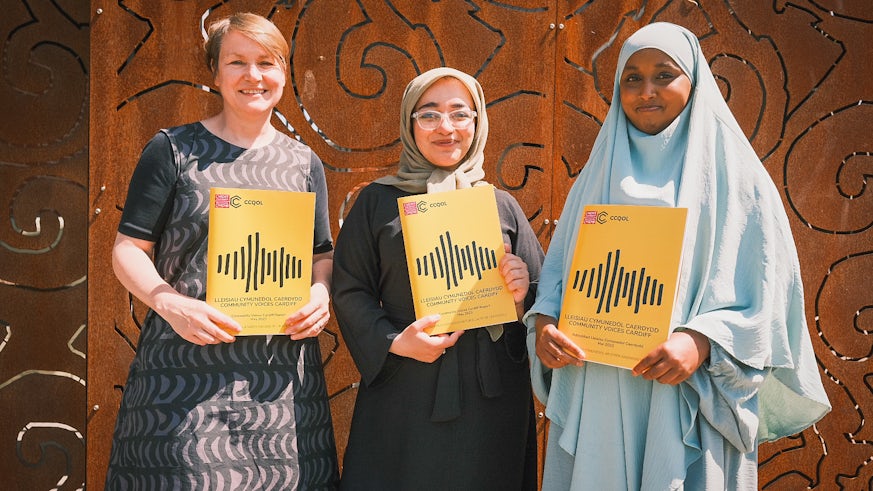
Members of so-called 'hard to reach' communities actively withdraw from consultation on planning decisions in their local area unless there is evidence that participation will meaningfully impact decisions, a new report has found.
The Cardiff University report, Community Voices Cardiff, reveals a mistrust among community members of buzzwords and the negative implications of consultation language which can make empty promises, create barriers, or can be triggering if not followed up with tangible action.
Funding for consultation should instead go directly to communities, so it can be led by trusted and trained community members in a way that’s appropriate, relevant, interesting and accessible for different groups, the authors argue.
Professor Mhairi McVicar, Project Lead for Cardiff University’s Community Gateway and one of the report's authors, said: "The primary aim of our project was to work with communities to establish guidance for making community consultation as effective as possible.
"And that's really about communities first of all knowing they have a right to a voice in the planning of their cities but also knowing how to get involved with it so they can meaningfully impact any decision making about the future of their city."
The Cardiff team, completed by Mymuna Soleman of Privilege Café and Shoruk Nekeb, a Welsh School of Architecture graduate and co-chair of the Grange Pavilion Youth Forum, worked together with an advisory group of local organisations and residents to setup an urban room in the Grange Pavilion where people could drop in, meet or run activities to share and discuss information about their local area.
The Community Voices Cardiff report shares the findings from a year-long programme of in-person, online, individual and public conversations, events and workshops on how to do community consultation differently.
Professor McVicar, who is based in the Welsh School of Architecture at Cardiff University, added: "What came through really strongly in our work with communities here in Grangetown was a mistrust of the language around consultation, particularly outmoded views of communities being 'hard to reach'.

"What we heard was that communities are not hard to reach but instead they actively choose to step away from consultation if there isn’t that belief or trust in what the consultation is actually doing and what it’s for."
The team ran an online survey alongside the urban room so that community members could choose to participate in the process in-person or online.
The survey results revealed that nearly three-quarters of respondents (73%) had 'never been asked' to participate in a planning consultation and over half (54%) heard about Community Voices Cardiff through a personal connection.
Respondents also preferred a variety of online and face-to-face consultation options to be available and those who visited the urban room did so to hear the opinions of other people, to access information, and to feel part of a community.
The team says their results are evidence of the need to have existing knowledge of the community and be adaptable when seeking to consult on planning decisions.
Mymuna Soleman, Community Partnership Manager on the project, said: "If people have been consulted in the wrong way for a very long time, they are very disengaged. So, it's about building that rapport with individual people, rather than just coming in with an agenda and a clipboard and a tablet and saying, 'can you do this and that.'
"I began with my already established networks. We created social media platforms, and I shared it on my own personal platforms and my own mailing list. My lived experience informed my approach, and that’s why it’s important that the right people are doing this from the start."
Community Voices Cardiff is one of four reports being produced as part of a UK-wide Community Consultation for Quality of Life (CCQoL) research project led by Professor Flora Samuel.
Funded by the Arts and Humanities Research Council, CCQoL aims to test how creating local knowledge through community consultation can help inform longer-term decisions about future development and improvements in communities across the UK.

Ali Abdi, Community Gateway Partnership Manager, added: "When consultations do take place in diverse communities like here in Grangetown, people feel there is little to no feedback or it isn't accessible for them to engage with, so they can see and be part of the changes that are proposed in their local area.

"The report shows that you’ve got to invest and you’ve got to involve local people who know their communities really well and have trust with community members. You’ve also got to be able to adapt to the needs of communities by doing things online and in-person in community-led spaces."

"It's these kinds of recommendations that institutions and organisations need to learn from if they want active participation in their consultations and to ensure no one is left behind in the process."
A series of public workshops has taken place since the project's completion, between Cardiff Council and an emerging network of residents and organisations interested in launching a resident-led Grangetown Place Plan promoting opportunities for community ownership and partnership in decision making on housing and green spaces.
Councillor Dan De'Ath, Cabinet Member for Strategic Planning and Transport at Cardiff Council, said: "Local ward councillors, council officers and I have attended urban room events at the Grange Pavilion, and we continue to support and engage with Mhairi, Mymuna and the team.
"The council is happy to work with local communities to ensure that information relating to planning and development in Cardiff is given in a way which is understood by all, so that members of the community can engage in the process and help to shape new developments in their local area."
The Cardiff Community Voices team will now contribute to a national CCQoL report with their counterparts in Reading, Edinburgh and Belfast from which they will develop a code of conduct for consultation based on their collective findings.
Share this story
Find out more about the work we do and the communities it helps.
